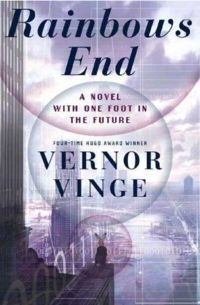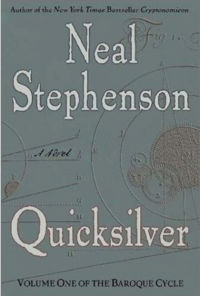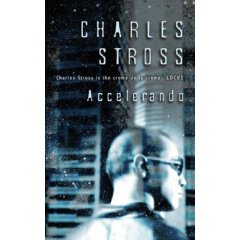Tommie laughed. “You should do some ego surfing. Your hack was noticed. Back when I was young, you could have got a patent off it. Nowadays –”
Xiu patted Tommie’s shoulder. “Nowadays, it should be worth a decent grade in a high school class. You and I — we have things to learn, Thomas.”
– Vernor Vinge in Rainbows End

As the person who came up with the term “Technological Singularity”, any new science-fiction book by Vernor Vinge is always highly anticipated. Unlike his previous two bestsellers, A Deepness in the Sky and A Fire Upon the Deep, both of which were space opera novels set in a universe of his own creation with specific rules to allow a high level of technological development without invoking a singularity, Rainbows End is a solid science-fiction story set in a near-future Earth. There are tech toys aplenty and cyberspace permeates and interconnects with the real world, but it’s still more or less our same old planet with recognizable lifestyles and people. Unnoticed by the most of the world’s population however, who live mostly pleasant and peaceful lives, are events that suggest that the state of the world is not as stable as it seems, and there are hints of upheavals yet to come.


